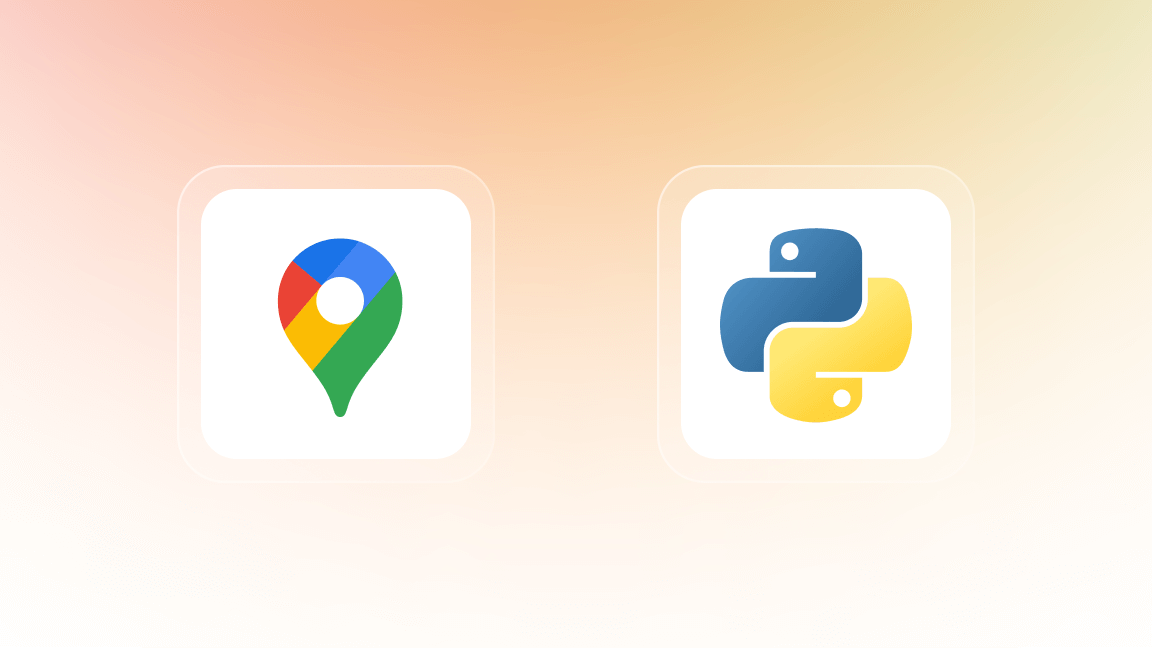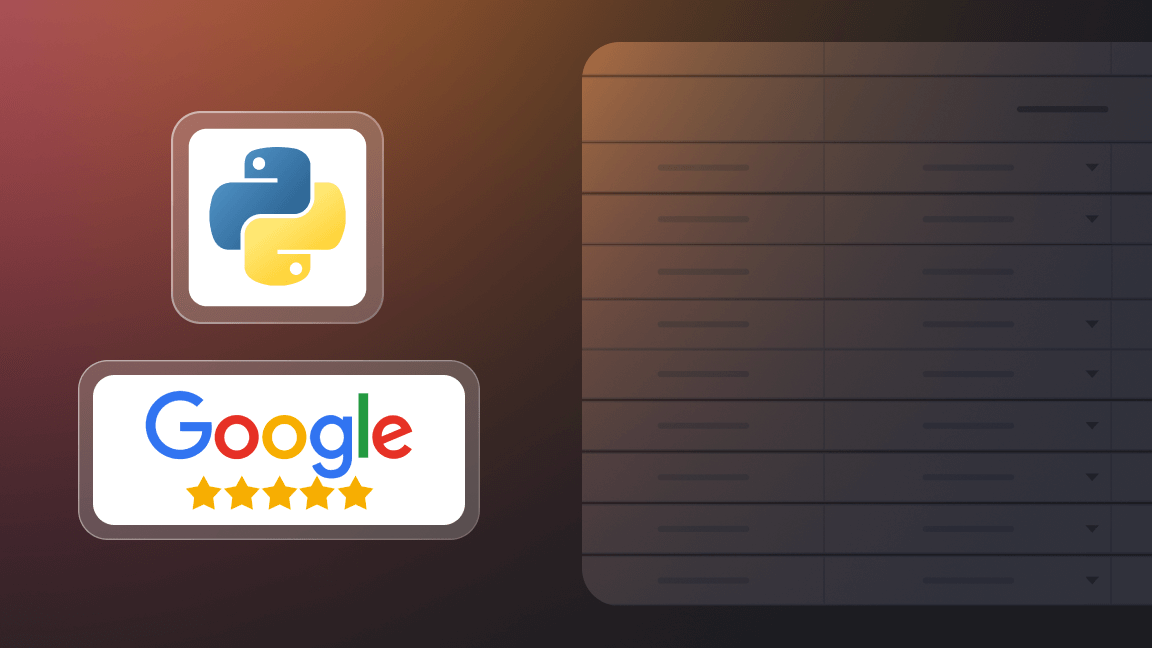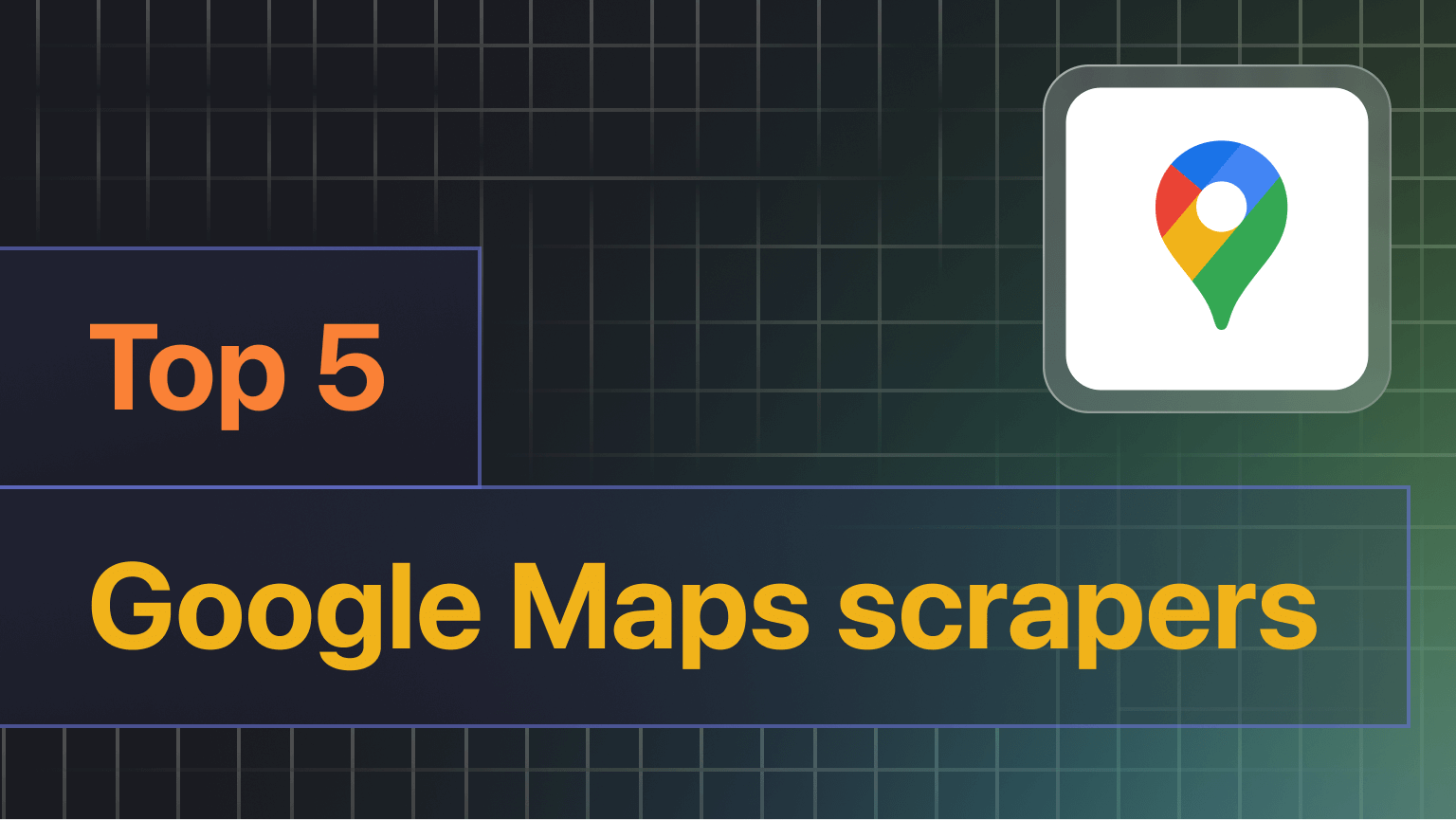The Internet has gone fully visual lately; it was destined to. For web developers and data analysts, having direct access and being able to extract images from the web in general (and Google images in particular) can be a game-changer with numerous applications. This is where Image Search APIs and web scrapers are the best tools for the job.
With Google's image search capabilities, scrapers and web scraping APIs can help with a lot of use cases: from simple image dataset creation for machine learning models to monitoring brand presence across the mercurial digital landscape. A good Google Image API (or Image Search API) will be designed to make the process of extracting images from the web fast, easy, and versatile. So how do we pick one?
Let's discover Google's official image API and other alternative image APIs for Google.
🔃 Alternatives to image search APIs
Web scraping is a well-known alternative to using an official Google images search API. With an image scraper, developers can programmatically extract image data directly from web pages. On the other hand, there are a lot of image web scrapers that even somebody with no coding experience can use.
Image scrapers enable the collection of images from a wider range of sources and formats, often providing more control over the selection and filtering of image data. So let's see what's out there in the market of Google image scrapers.
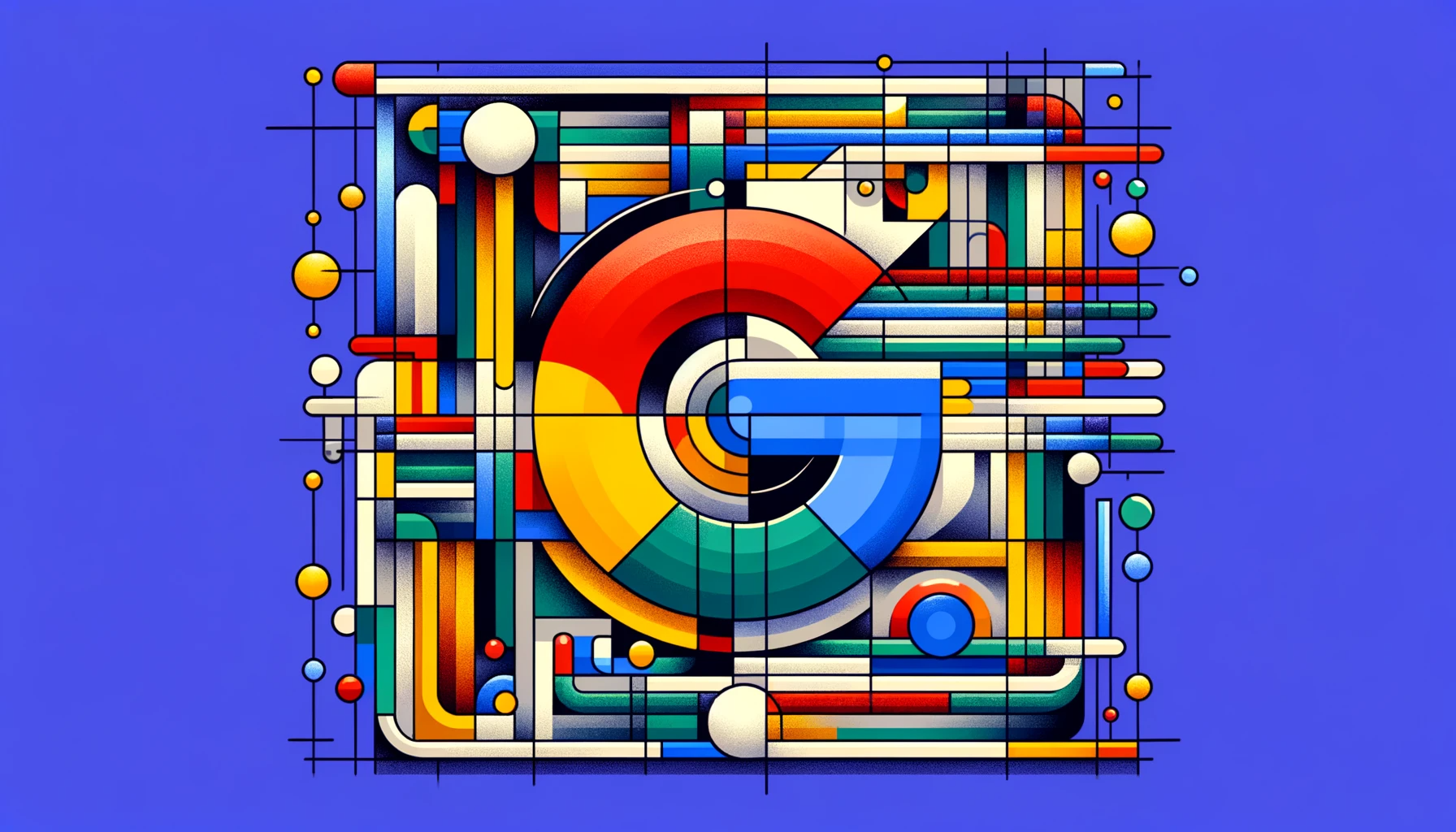
🌟 Top 5 Google Images API and 1 web scraper (as of 2024)
1. Serper Google Search API
The fast solution. Serper offers a Google SERP API that combines the standard Google Search scraping with images and other search types, such as videos, places, and news. For image scraping in particular, Serper's APIs can be a valuable tool for developers looking to efficiently gather image data from Google searches. The plans vary from $50 to $3750, from 50K to 12.5M queries, with customizable query location and language. The platform's emphasis is on speed, though JSON data format seems to be the only export option.
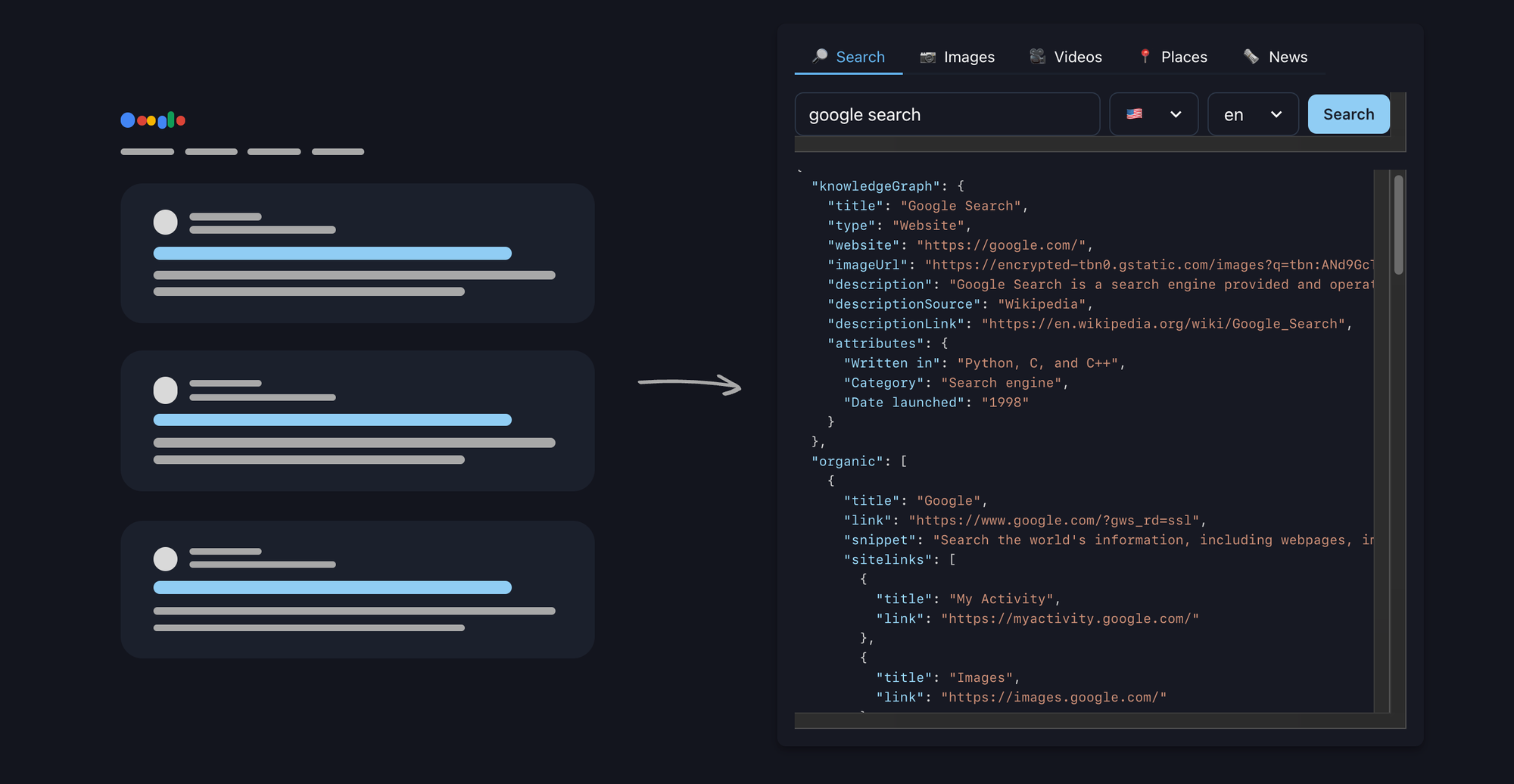
2. Google Custom Search JSON API
The official solution. Yup, we're not discounting the official option. Although it cannot scrape images immediately, a little bit of setup shouldn't scare you if you're used to using the official APIs. That being said, it could be a costly option. You can read in more detail about Google's own image API and how to set it up in the next section of this article.

3. Zenserp Image Search API
The two sides of one coin solution. Zenserp offers two Google image APIs: Google Image Search API and Reverse Google Image Search API. The first one allows users to scrape images from search result pages, offering up to 300 image results per query with pagination support. It includes filters for size, color, type, and time. The second one enables reverse image searches, finding web pages containing specific images using a link. Amount of searches varies from 50 to 120K, and pricing starts from $0 to $399.
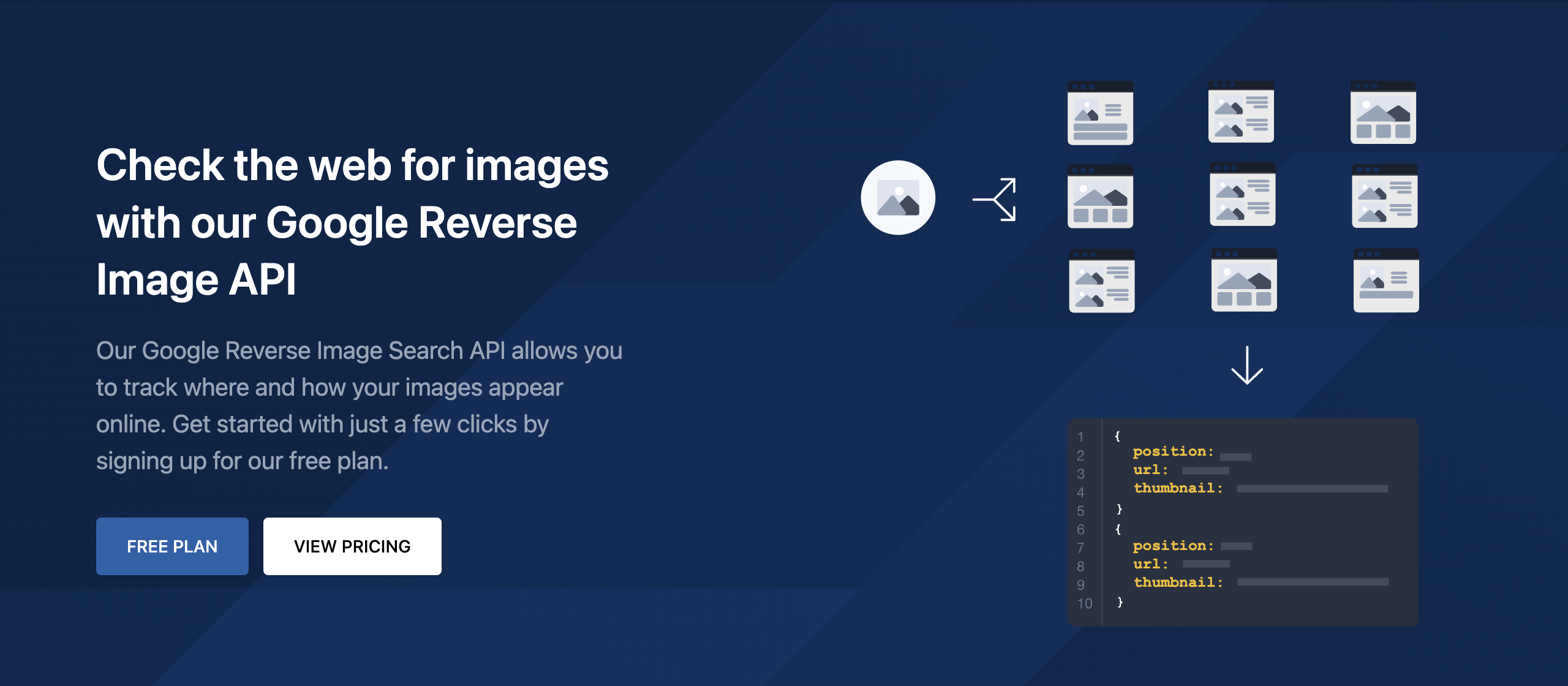
4. Google-Image-Scraper
The open-source solution. Google Image Scraper is a Python-based web scraping tool for extracting images from Google search results. Prerequisites include Google Chrome, Python3 packages (Pillow, Selenium, Requests), and Windows OS preferably. It's customizable, supports proxy use, and can handle downloading images based on specific search queries. And as a cherry on top for all the coders out there: this Google Image Scraper is open-source and offers a command-line interface that you can interact with to initiate and control the scraping process.
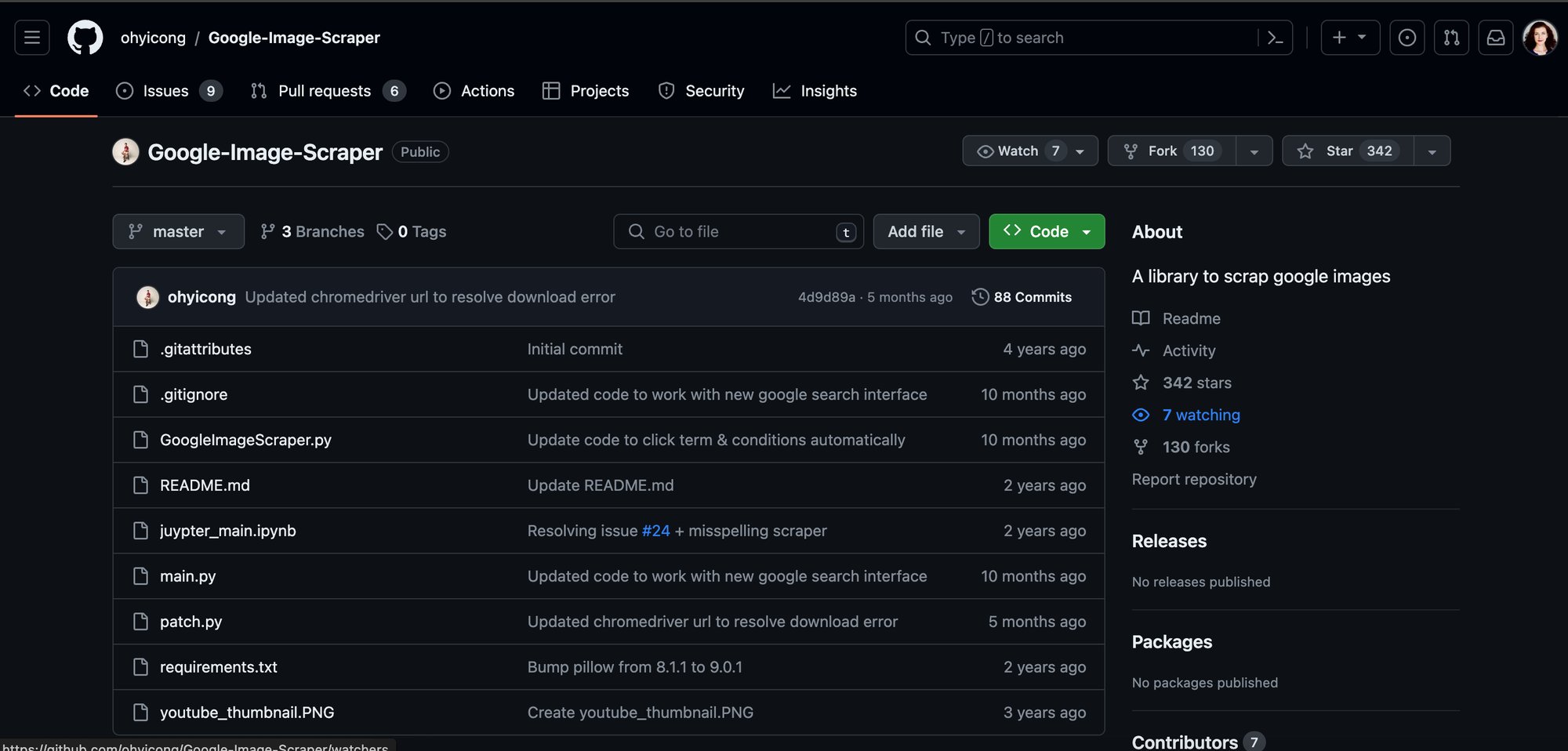
5. SerpAPI Google Images APIs
The batch solution. SerpAPI has several API options: Google Image Results API, Google Image Related Content API, Google Images Related Searches API, Google Image Shopping Results API, and Google Image Suggested Searches API. These APIs return a JSON array containing image data such as position, thumbnail URL, original image URL, title, source, and more. It's a perfect solution if you need images in batches or specific cases, with advanced filters for size and image type. Using this API you can also do advanced filter search: filter your scrapes by size, image type, and more; with a little bit of extra coding, of course.
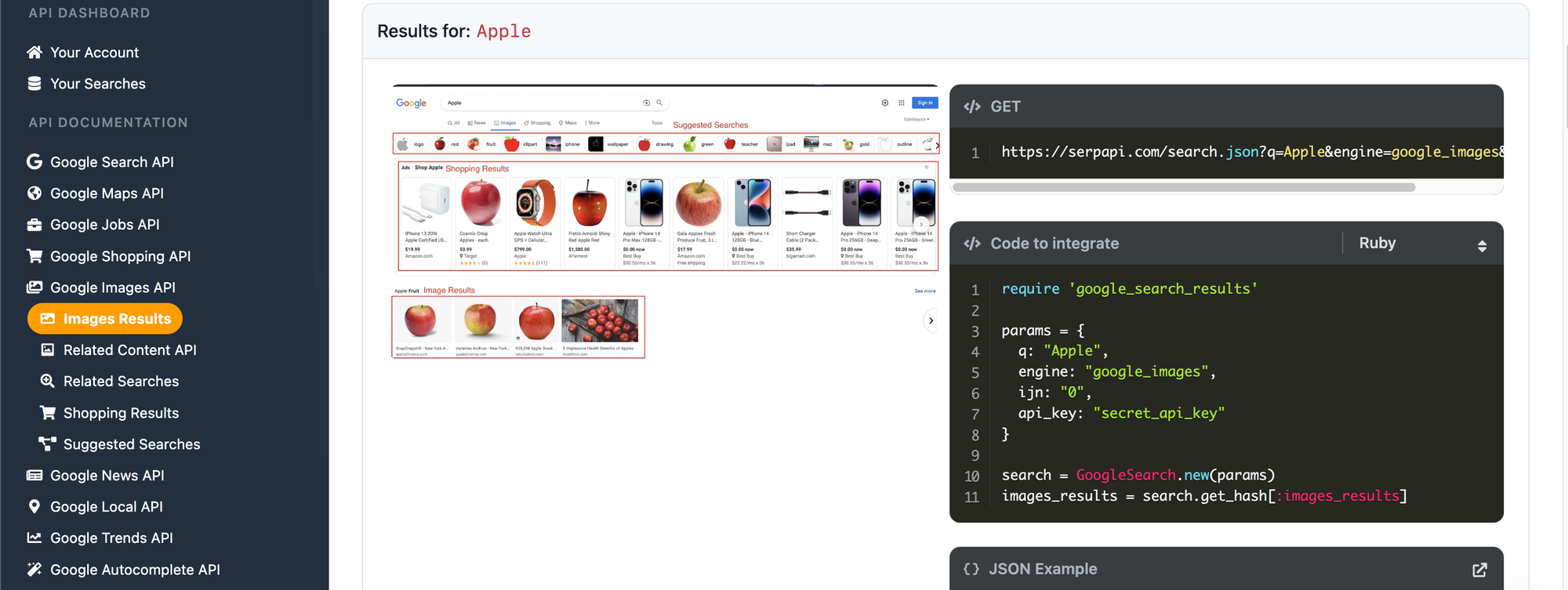
6. Apify Google Images Scraper
The bonus solution. Sometimes, web scrapers tend to become useful stand-ins for APIs. Similarly to a Google Image API, Google Image Scraper allows users to extract detailed image data from Google Image search, including image URLs, source website, and dimensions. This tool is particularly cost-effective, charging $3 for scraping 1,000 images, with the Apify platform offering $5 free usage credits monthly. It supports integration with other tools and multiple format options for export.

📓 Is there an official Google Image Search API?
Google does not provide a dedicated API specifically for image searches, a sort of concrete "Google Image Search API" that one might expect. So essentially, a separate Google Image API (not to be confused with Google Photos API) doesn't exist.
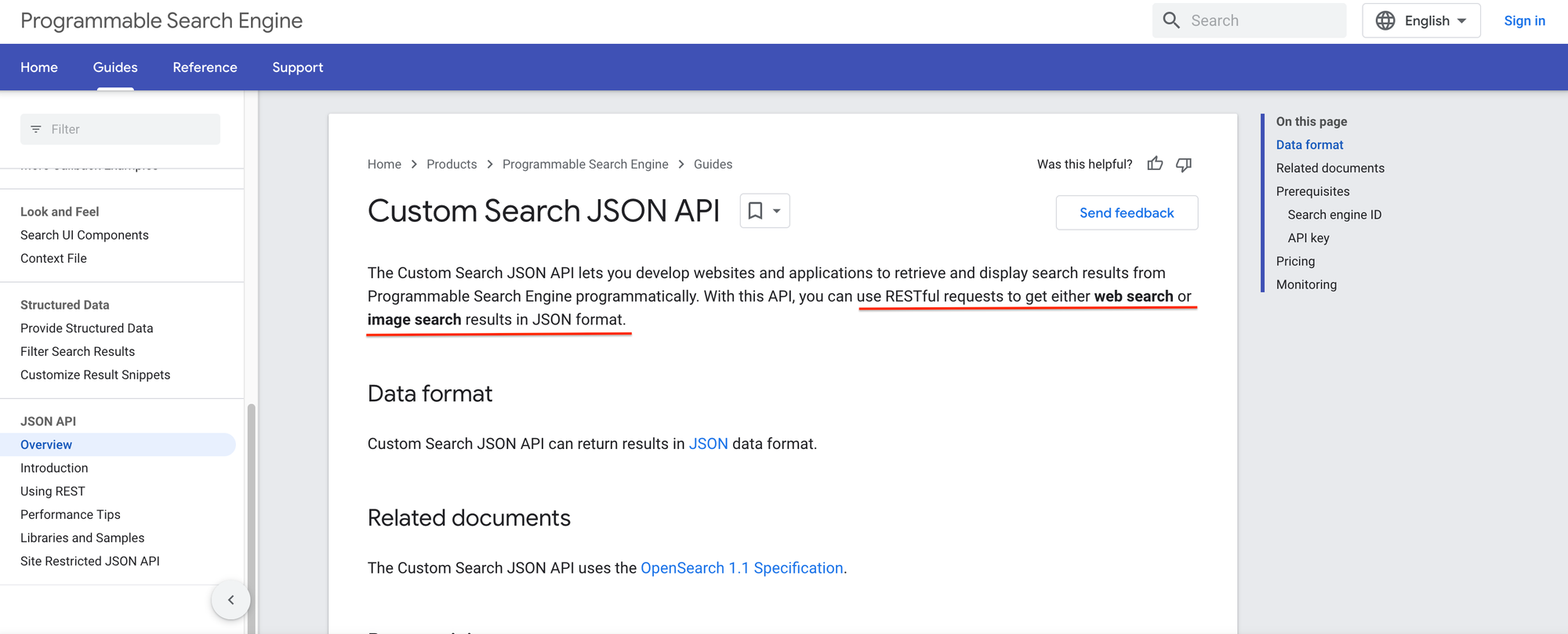
Instead, Google offers the Custom Search JSON API, which generally allows developers to create custom search engines for their websites or applications. This API can be used to perform web searches, and with certain configurations, it can also be used to search for images. While this is not the same as a dedicated image search API, it does provide a way to retrieve image search results programmatically. The search results are returned in JSON format, making it easy to integrate into web applications and process programmatically.
However, it's important to clarify that this is not a direct Google Images API but rather a more general search API that includes some capabilities for image searching.
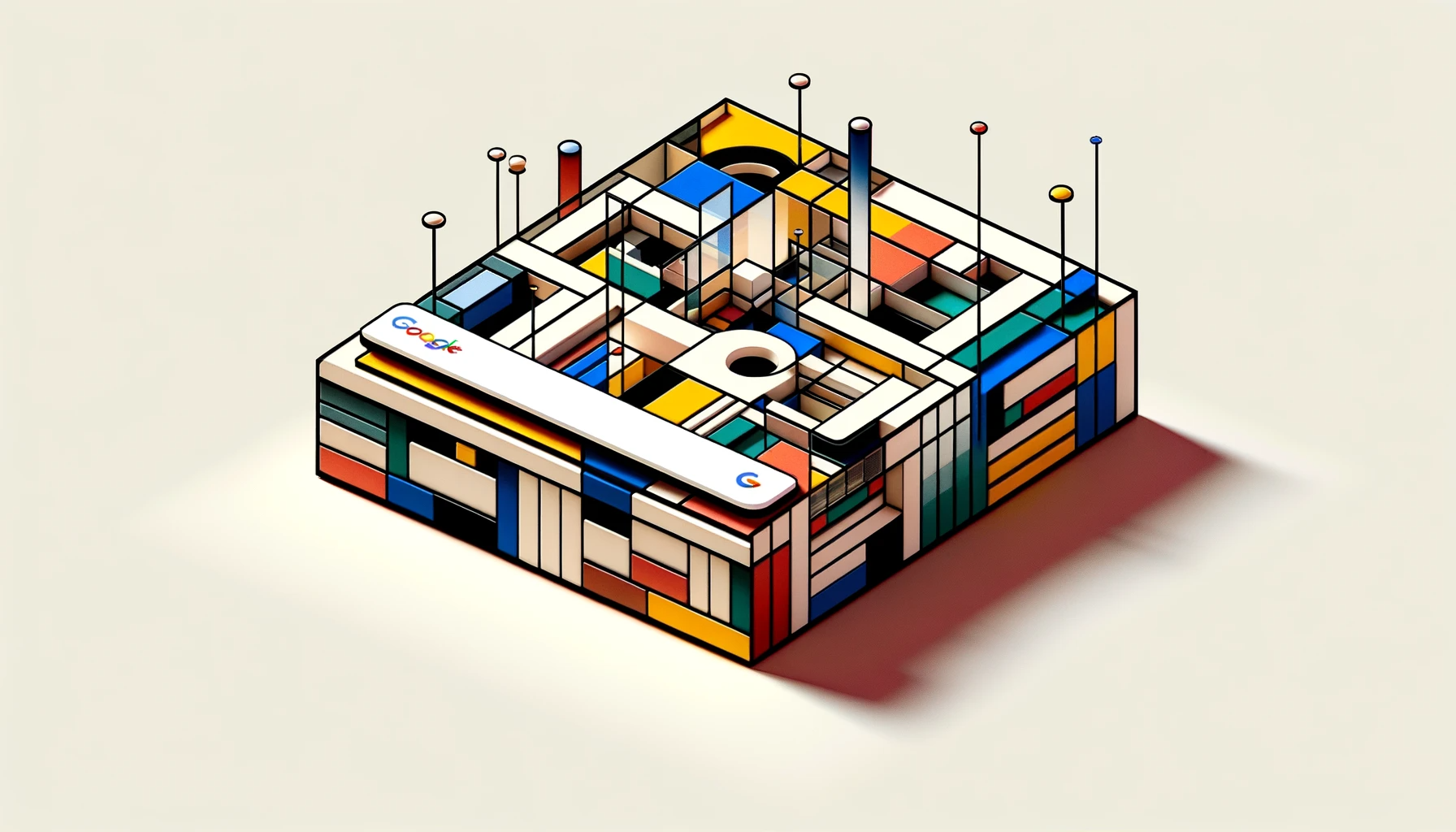
Conditions for using the Google Custom Search API as an image search API
- API key. To use this Custom Google API, you must have an API key. This key will be used to authenticate requests and track usage.
- Search engine ID. You will also need to specify a custom search engine ID (cx) in your requests. This ID corresponds to the custom search engine you've configured in your Google Cloud account.
- Google account. Goes without saying: every action you perform will be linked to your Google account.
- Some level of coding skills. They do not call it "Google for Developers" for no reason – you have to know how to operate with keys, RESTful requests, and APIs.
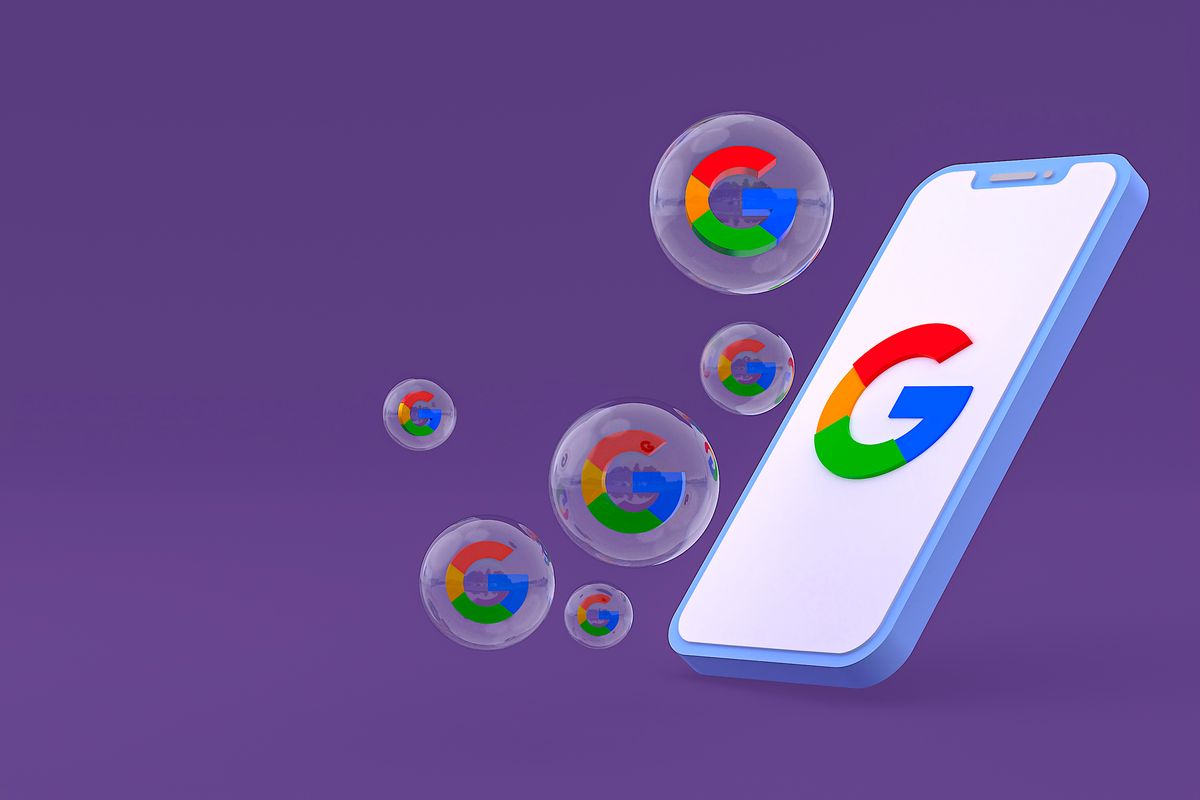
If you want to learn more about Google's custom search engine and top Google SERP APIs in general, check out this guide
So how can I use Google Custom Search API as an image search API?
Here's how you can set it up to perform image searches:
- Create a custom search engine. First, visit Google's Programmable Search Engine site and set up a custom search engine. This process involves specifying the parameters for your search engine.
- Configure for image searching. During the setup, ensure you select options like "search the entire web" and enable "image search". This configuration is crucial for tailoring the search engine to fetch image results.
- Obtain an API key. You’ll need an API key to authenticate your requests. This key is available through the Google Cloud Platform, and it's linked to your Google account.
- Use the Custom Search JSON API. With your custom search engine and API key ready, you can use the Custom Search JSON API. When making requests, set the searchType parameter to image. This instructs the API to return image search results. For detailed parameters and methods, refer to the API documentation.
- Understand the usage limits. The Custom Search JSON API is not free. This Google API allows up to 100 search queries per day for free. If your project requires more, you can opt for a paid plan in the API Console. The cost is $5 for each additional set of 1,000 queries, with a maximum limit of 10,000 queries per day.
So yes, while there isn't a standalone Google Images Search API, the official one from Google provides at least some capabilities for retrieving image search results. By following the steps above, you can effectively use this Google API as an image scraping tool of your own. But what if its limitations, and pricing structure don't suit you? Or what if you don't have the required coding skills? If you're looking for a more specialized image search, you might need to explore other third-party APIs or services that are dedicated to extracting images.
❓ Other FAQ
Can I use Google Lens API as a reverse image search API for Google?
Used to confirm image uniqueness, Google Lens can find any image or similar images on Google. So by this logic, the Google Lens API such as this one from Apify can be used for reverse image search. This API is capable of performing several functions, including reverse image search. It will help you with searching the web for similar Google web images, identifying the context of an image, or even verifying the uniqueness of an image.
To find matching image results using this web image scraper, all you need to provide is a publicly accessible image URL. As long as you provide that image URL, the tool will return information such as the image type, an array of OCR text fragments, locale, and optional site links for visual matches. Specifically, for reverse Google images search, this tool will search for visual matches without spending extra computing units.
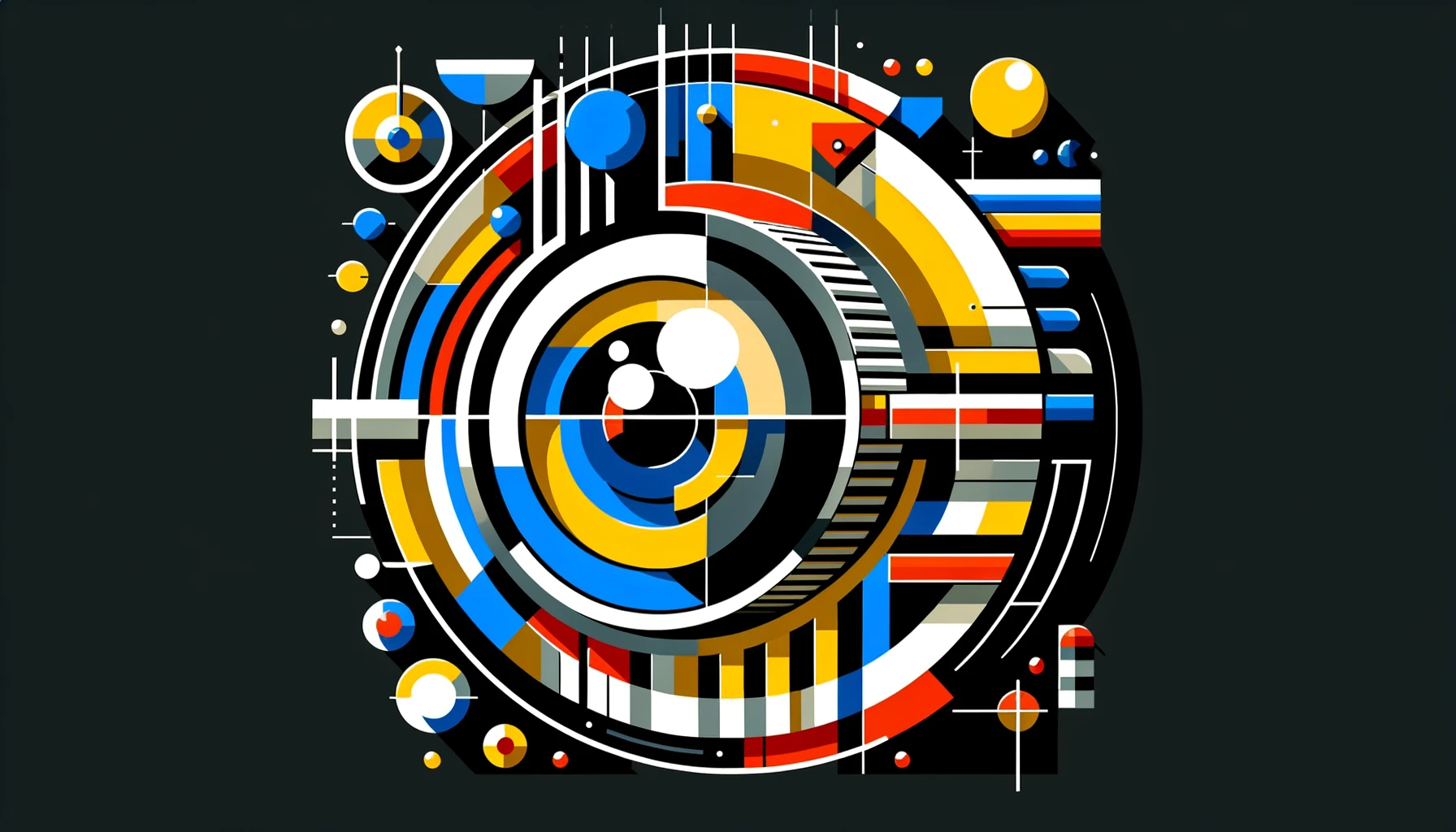
Can I create my own web scraper capable of scraping images and creating image datasets?
Yes, you can create your own fully featured Google Image API similar to or even better than the ones we've described here. Let's say you want to create a vast image database and feed it into an app. You can create your scraper on a platform like Apify and use its API to transfer the data. With Apify API, you can connect your image scrapers with any app, essentially turning your scrapers into their own APIs. That means that if you host your scraper on this platform, you can access image search results and retrieve Google image data with a simple API call.
Do you need special proxies to scrape Google images?
As with anything on Google, you need a SERP proxy to be able to scrape search results, including images. This is because Google has mechanisms in place to limit and control automated access to its search results. A SERP proxy can help bypass these restrictions, enabling the smooth scraping of image data. Some API providers like Apify have SERP proxies baked into their Google APIs and web scraping solutions for convenience.
Note: This evaluation is based on our understanding of information available to us as of February 2024. Readers should conduct their own research for detailed comparisons. Product names, logos, and brands are used for identification only and remain the property of their respective owners. Their use does not imply affiliation or endorsement.




